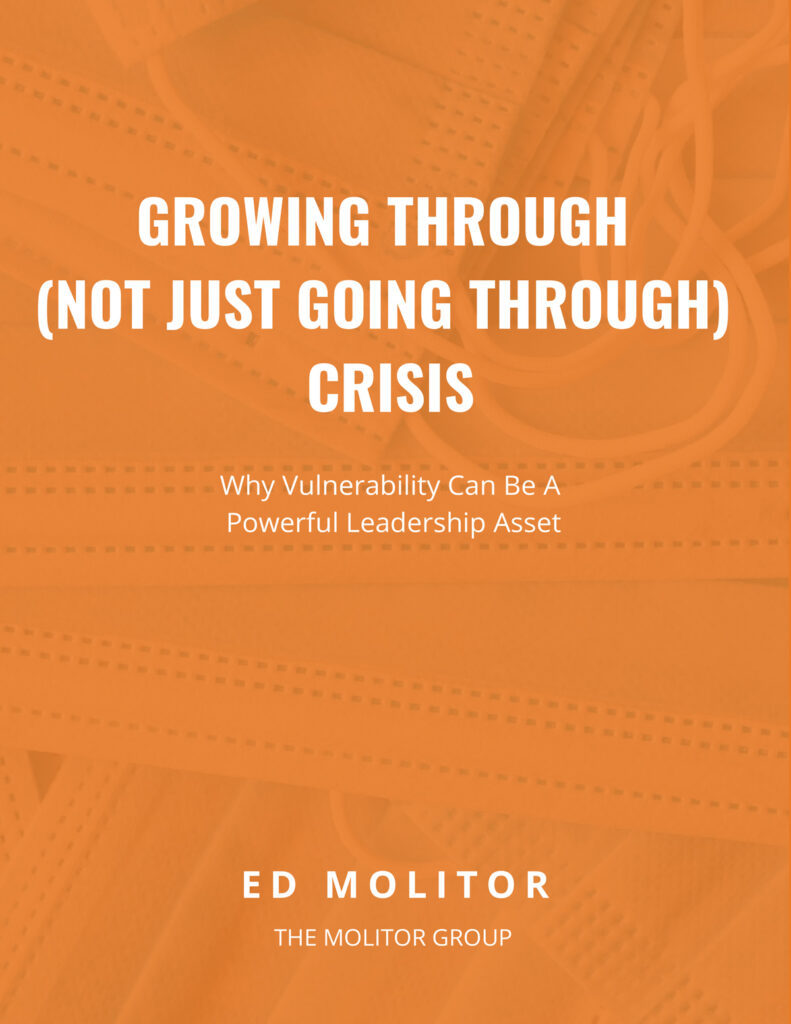How does a leadership team adopt a collectively activated and inspiring, motivating vision that moves their team forward with them? I want to talk about how your organization’s culture and operating principles drive success, particularly in times of adversity. ‘What is adaptive leadership?’ is a question that I am often asked when I’m coaching business leaders, so I want to spend a little time discussing it here.
It is such a powerful decision to focus on need rather than precedent and be willing to take risks or even walk away from all things that aren’t business-critical. In times of change, it’s important to temper your desire to go fast because you need to allow your people the space to fail on the journey, knowing you will make them and the organization stronger over time.
The world is moving fast in terms not only of technology but accessibility — even when we’re not in the midst of a global pandemic. I have had the pleasure of interviewing so many experienced and insightful business leaders on The Athletics of Business podcast, and one of the topics that have come up time and time again is adaptive leadership.
Being Present in the Moment
We should focus on the need to be present right now and learn fast while doing that. The best way to do both things is to maintain constant communication with our teams. As a previous guest on the podcast, Jason Bey would say it’s essential to communicate, communicate, communicate with people and move quickly to make the most significant impact possible. Jason Bey, Vice President and Franchise Head at Dompé, is an experienced leader who specializes in building & leading teams, strategic planning, leading innovation & change, and driving excellence. He gave me so many golden nuggets of information when he was on the show.
Building success in times of change takes the right mindset and hinges on three central things:
- Activating an inspiring and motivating vision,
- Creating a substantial value proposition
- Being intentional about your operating principles
When your organization puts a tremendous amount of effort into HOW you will achieve your goals, rather than just having those goals in the background, you are much more likely to get there, which equals more sustainable success over time.
As a leader, you can collaborate with your team in a raw, authentic fashion to develop your operating principles; you don’t have to outsource that kind of thing. You can simplify it, make it real, live with it, and put it into motion.
Anchor around these operating principles as a leadership team. Don’t slow your roll after you come up with them; embed them in your culture — you can even embed them in how you evaluate people. Build out your company culture and everything you do around your vision of what the organization is moving towards and how that journey looks.
Focus on need, not precedent, and don’t be afraid to take risks. Often, when you stumble as a business or face a challenge, you look back at your historical experience and try to apply the same things. Instead of doing that, apply adaptive leadership thinking. Look straight in the face of what is in front of you, and adapt to what is actually needed versus what you want. Be very thoughtful, and through relentless prioritization, you will achieve exceptional execution. As a leader, be very clear on what you expect of your people and where they should focus. The game-changer will be adopting that simple, focused approach.
Relentless Prioritization Leads to Exceptional Execution
Get completely dialed into your why and talk about it with your team. Put yourselves in the shoes of your customers or service users. Align with the vision and empower people to make decisions at the local level that support the vision.
Understand how hiring people with diverse skill sets will potentially help you in the future; consider hiring people with an entrepreneurial spirit. Because after you align on what’s most important, you have to give them some space to try different things, perhaps even to fail, and support them with the right coaching and feedback. That empowers the team, excites them, elevates their energy level, and allows them to feel that they’re making a valuable contribution.
When you allow individuals to have that runway to make mistakes, to relish their success, it just ignites a fire in them that you want to continue to sustain over time. First and foremost, you need to align your strategic imperatives as an organization, then cascade that down appropriately.
What is adaptive leadership is discussed at length in The Athletics of Business podcast, particularly in Episode 39 with Jason Bey. You can also check out the rest of the blog series or listen to some of my other amazing guests on The Athletics of Business podcast, who share their insights into all aspects of leadership in the world of sports and business.



